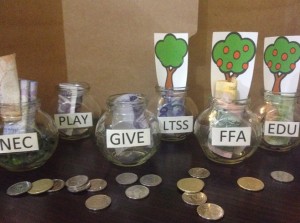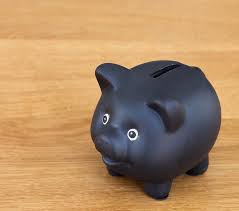How to Save Money Using the JARS System
The habit of saving up is just like any other process or system that if explained well and backed up with evidence can also become scientific in nature. All it requires is just a proven approach and a step by step process for one to achieve its desired result. The process should have detailed guidelines that may include objectives (what you want to achieve), the “implementation process” (this is the application part) and of course an evaluation tool that will serve as the check and balance if you have done the process in the right way.
Consequently, in the world of money, there is a system that satisfies all these scientific criteria. It is named as the JARS System of Money management. As its name implies, this system helps people organize and put to order their (very) chaotic earnings and spending money habits. So, let me introduce to you how the 6 JARS Money System works.
Before you read on, it is recommended that you get the following first: a pen, a paper; a calculator and 6 jars of any kind (it doesn’t really matter).
If you have with you all of the mentioned requirements above, then you already made the first step towards gaining true financial freedom. The second step is to label the 6 jars with the following acronyms: NEC, PLY, FFA, EDU, LTS, GVE. The next step is to withdraw all your earnings for the month and lay it down on the table. The last step is to take out your calculator and compute your earnings base on the allotted percentage assigned on each jars. The most important instruction is to keep safe these jars with your money in it. This is called the JARS System.
 Now, below are the given descriptions of the 6 acronyms mentioned above labeled in the jars with its corresponding percentages:
Now, below are the given descriptions of the 6 acronyms mentioned above labeled in the jars with its corresponding percentages:
- NEC – The Neccessity Account (55%): This jar or account is allotted for your daily expenses and the regular monthly bills. This includes rent, mortgage, utilities, bills, taxes, food, clothes, fare, gasoline, etc.
In summary, these things are needed for your daily life routine; it’s called the everyday basics. - PLY – The Play Account (10%): This money is for expenses that will entail you to feel good about yourself. Some examples may include massage, a trip to the salon, a weekend vacation or a great dessert treat. This normally refers to your indulgence to nurture yourself after a hard day at work.
- FFA – The Financial Freedom Account (10%): This part of the savings goes to long term investment. As the name implies, this jar is the key to being financially free. This is like the seed money for your retirement. So, never spend this one until you retire. A rule still applies that even though you have achieved financial freedom, the only money you can spend are its returns. Never touch the principal until old age. Keep this in mind always.
- EDU – The Education Account (10%): The JARS system believes in the self. This means that it gives primary importance to self-improvement to make you more productive in the community. Thus, this jar will help you achieve this kind of goal. This is for further education, seminars for personal growth and other things that will enhance the self. This is in line with the belief that the greatest investment is investing in yourself.
- LTSS -Long-term saving for spending Account (10%): This is money intended for extras in life. These includes contingency fund for emergency expenses, nice to have gadgets, appliances, furniture and most of all your children’s educational fund. You may have many LTSS jars and depending on your need, you just have to divide the 10% between the jars according to priorities. This may seem small in percentage but with consistency and discipline, it will surely go a long way.
- GIV – Give Account (5%): This is a portion of the savings that is anticipated for family and friends concerns. This can be used for birthdays, special occasions and even emergencies. Thus, this jar is the one intended to be given away.
The message of the 6 JARS system is clear; it is not actually the amount that matters but the habit of saving up and allotting money intended for the right purpose. For a start, try allotting your P100.00 as your initial money in the jars. Then, in the next payday, start filling the jars up. At the end of the year, you will just be surprised of how much money you have earned.







